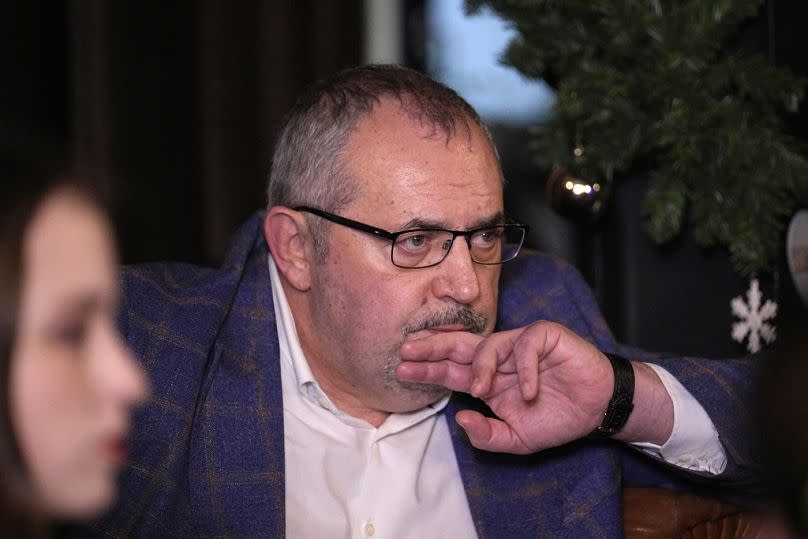Russians queue to support Putin opponent in bid to enter presidential election race

Thousands of people have been queuing across Russia to give their support to the liberal politician, Boris Nadezhdin in his bid to oust Vladimir Putin and become the next Russian President.
To stand as a candidate in the election on March 17th, Nadezhdin needs 100 thousand signatures from voters across the country.
60-year-old Nadezhdin is largely unknown to the general public, although he has been active in national and regional politics since the early 1990s and has worked with various parties throughout his career.
But now he is the only potential candidate who openly speaks out against Russia's actions in Ukraine.
This offers Russians who agree with him the opportunity to express their position legally and safely for the first time since the invasion, by standing in line and signing, which many have made use of:
“I support everyone else. I'd even vote for a bald devil as long as something changes," said one Nadezhdin supporter, admitting that despite this, he felt it was pointless.

Several people in line outside Nadezhdin's campaign office in Moscow said they also wanted to see how many like-minded people there were. Even if Nadezhdin is not admitted to the race, this demonstrates for the first time that many Russians do not support the Kremlin's policies.
“I am a mother and have three children. The war is terrible. It just has to stop as quickly as possible," said one woman, also waiting to sign for Nadezhdin.
Criticising what is called a 'special military operation' in Russia is prohibited and since February 2022, more than 20 thousand people have been arrested in anti-war protests.
In response to reports that Nadezhdin had already collected the required signatures, President Putin's press secretary, Dmitry Peskov said:
"We do not consider him as a rival at all."
Earlier this month, Nadezhdin spoke optimistically about his presidential bid arguing that his calls for peace were getting increasing traction and he has received donations from thousands of people.
Nadezhdin was meeting a group of soldiers' wives who were demanding that their husbands be discharged from the front line.
The mobilisation of 300 thousand reservists amid military setbacks in Ukraine was widely unpopular and prompted hundreds of thousands to flee abroad to avoid being drafted.
Nadezhdin criticised the government's decision to keep them in the ranks as long as the fighting continues:
"The country wants peace. It's crystal clear. The country wants this to end. People want to bring back those who are there", he said
Nadezhdin must have collected the necessary signatures in more than half of Russia's regions by 31 January. This cannot exceed 2500 per region, which means that Nadezhdin must gain sufficient support in at least forty regions.
Even if he succeeds in doing so, it will not be known until mid-February when the electoral commission has studied all submitted signatures and documents, if his name will be on the ballot.
Opposition figures vow to fight Putin

In December, another Russian politician calling for peace in Ukraine lost her appeal against election officials' refusal to accept her nomination for the presidential race.
Former regional legislator Yekaterina Duntsova had been promoting her vision of a “humane” Russia “that’s... ready to cooperate with everyone on the principle of respect”.
After losing the appeal, she said she would start working on creating her own political party that would stand for “peace, freedom and democracy”.
Meanwhile, others are fighting from behind bars in penal colonies or self-exile abroad,
Although they believe Putin will be declared the winner no matter how voters cast their ballots, they say they hope to undermine the widespread public support he enjoys, turn popular opinion against the conflict in Ukraine, and show those who oppose it already that they are not alone.
“No one but us will step into this battle for the hearts and the minds of our fellow citizens. So we need to do it and win,” imprisoned Russian opposition leader Alexei Navalny said in an online statement relayed from behind bars.
Leonid Volkov, Navalny's top strategist and chief of staff, and his team have launched a project called “Navalny’s Campaigning Machine.”
The idea is simple — talk to as many Russians as possible, either by phone or online, and convince them “to turn against the candidates we hate: candidate Putin and candidate ‘War,’” as Navalny himself put it in an online post announcing the project in June.


